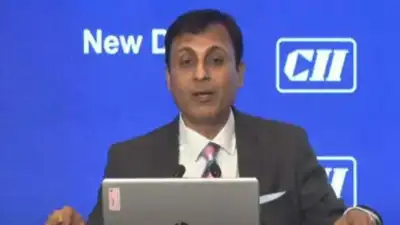
India’s Global Capability Centres (GCCs) could contribute as much as $0.5 trillion to the country’s gross value added (GVA) over the next decade, as India advances toward becoming a $10 trillion economy, a top Goldman Sachs executive said on Monday.Gunjan Samdani, Co-Chairman of Goldman Sachs India, said the GCC sector is expected to directly employ 20–25 million people in the coming years, underscoring its central role in shaping the country’s economic future. He was speaking at the Confederation of Indian Industry’s (CII) GCC Summit, ANI reported.“Sixty-five per cent of the global growth between now and 2035 will come from emerging markets, and India is a bright spot. We will be the fastest-growing economy in the world and will become a $10 trillion economy in the next decade,” Samdani said.He noted that India is well-positioned to benefit from shifting geopolitical and economic dynamics globally, including supply chain realignment, trade rebalancing and increased technology spending. The country’s demographic advantage, deep STEM talent pool, and rising capabilities in artificial intelligence (AI) — backed by the national AI Mission — would help India tap these opportunities effectively, he said.“India remains strategically positioned to capitalise on multiple global trends simultaneously,” Samdani said, adding that artificial intelligence represents the most compelling disruption opportunity in today’s evolving economic landscape.According to Samdani, global technology spending is expected to surpass $4.92 trillion by 2025, driven by AI-led digital infrastructure development. India, he said, has the potential to emerge as a major hub in this transformation, with GCCs acting as key players.The role of GCCs has evolved significantly over the years — from low-cost support centres to innovation engines that drive AI, automation and digital transformation for multinational corporations.These centres, typically offshore hubs set up by MNCs to run core business functions and services, are now helping shape strategic direction and innovation agendas for their parent companies. As a result, they are emerging as major contributors not just to the Indian economy, but also to the future of global enterprise operations, industry experts said.The remarks come amid renewed government efforts to scale up the GCC ecosystem beyond India’s traditional tech hubs and drive deeper integration with emerging technologies and talent across tier-2 and tier-3 cities.














